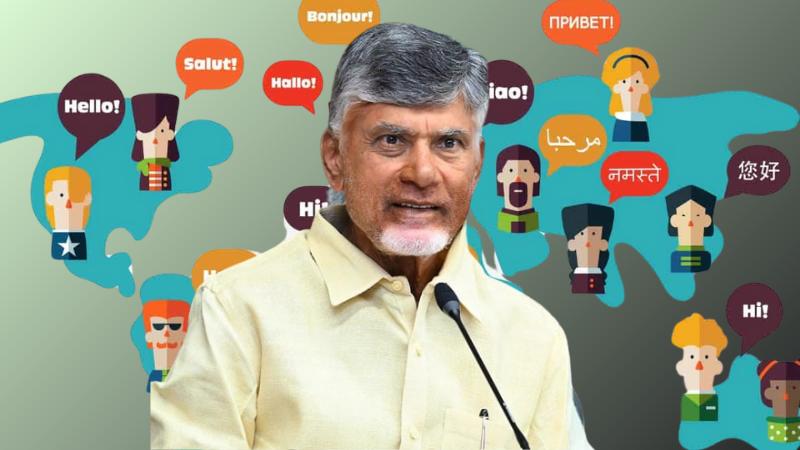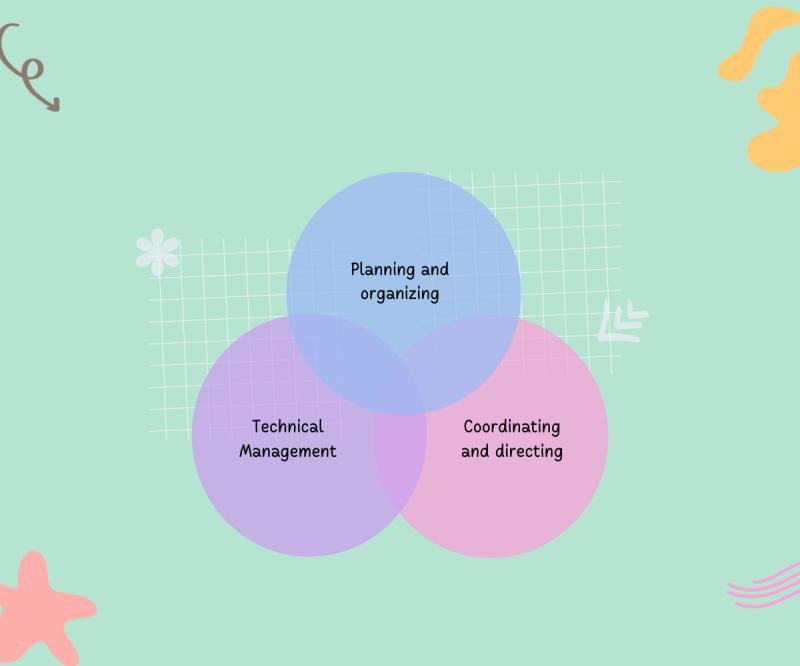
Andhra Pradesh : Chief Minister Chandrababu Naidu made headlines during his visit to Delhi, once again proving his political acumen and diplomacy. As a seasoned politician, Naidu was the center of attention for the national media, which attempted to corner him on the controversial Hindi imposition debate in South India.With rising concerns in South India over the promotion of Hindi over regional languages, national media pressed Naidu for his stance on the issue. However, in his signature strategic and diplomatic style, Naidu gave a balanced and thoughtful reply, stressing the importance of promoting multiple languages instead of limiting the discourse to just Hindi.
Naidu’s Multi-Language Approach: A Practical Vision for India
During the press conference, Chandrababu Naidu emphasized the need to promote regional, national, and international languages simultaneously. His response resonated with many, as he firmly stated that language is simply a mode of communication, whereas knowledge is universal.Naidu elaborated on his vision for linguistic inclusivity in Andhra Pradesh, advocating for a multi-language policy in universities to equip students with career opportunities across the globe.
"Knowledge is different, language is different. All of you are aware that Telugu, Kannada, Tamil, and other languages are shining globally. I’m going to promote 10 languages, including international languages, in every university. Students can study, go and work there. Not only three languages, I will promote multi-languages. We need to promote Telugu. We should also promote English as it is an international language for livelihood. It is better to learn Hindi, so that we can mingle with people easily," Naidu stated during his address.
Naidu’s response instantly won applause from the media, political circles, and social media users, with his stance being widely appreciated for bridging the gap between regional aspirations and national integration.
Political Diplomacy at Its Best
Despite being the leader of a South Indian state where Hindi imposition is a sensitive topic, Naidu maintained a neutral yet progressive stance. His reply was not just about defending Telugu or opposing Hindi; instead, he highlighted the necessity of linguistic diversity for education, job prospects, and national integration.His stance was also in sync with the National Democratic Alliance (NDA), as many NDA leaders hailed his views on the language debate. By advocating a pragmatic approach to language promotion, Naidu once again demonstrated why he remains a respected and seasoned politician in national politics.
Naidu’s Views Gain Traction on Social Media
Soon after the press conference, Naidu’s comments went viral on social media, with clips of his speech being widely shared across various platforms. Many users praised his vision for language education, calling it a balanced and forward-thinking perspective that acknowledges the importance of regional identity, national communication, and global career prospects.By turning a potentially controversial issue into an opportunity to highlight the importance of multi-lingual education, Naidu effectively presented a progressive roadmap for India’s linguistic future. His response has not only strengthened his image as a visionary leader but has also set an example for how politicians can handle sensitive debates with clarity and diplomacy.
A Clear Message for India's Future
Naidu’s stance on the Hindi vs regional languages debate provides a fresh perspective, encouraging the promotion of multiple languages rather than enforcing a singular language policy. His emphasis on career-oriented language learning is particularly relevant in today’s globalized world, where linguistic diversity is an asset rather than a barrier.As political debates on Hindi imposition continue, Chandrababu Naidu’s vision of linguistic inclusivity and global competency stands out as a progressive and practical approach, ensuring that language remains a tool for opportunity rather than division.












































